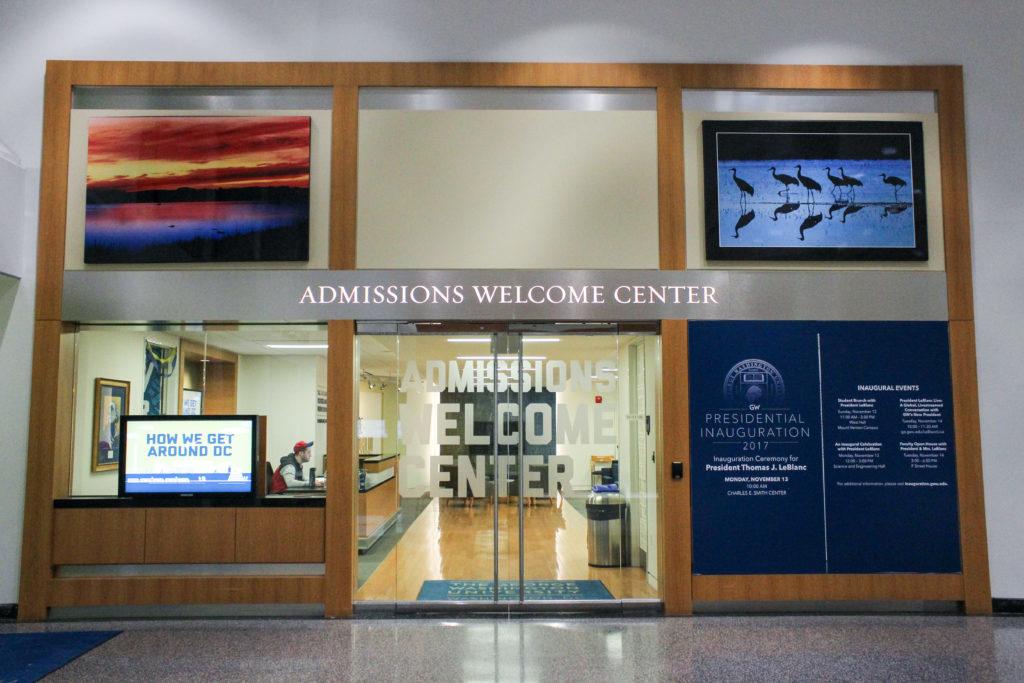The University is easing application costs for prospective students that have been affected by natural disasters across the globe.
Starting in mid-September, officials began offering application fee waivers to students impacted by a series of hurricanes, earthquakes and wildfires that have struck parts of the United States and the world in recent months, according to the undergraduate admissions website. The head of GW’s undergraduate admission office said “a couple of dozen” prospective students have asked for waived application fees in the wake of disasters, which aim to “remove potential barriers” for students going through a college search after a major weather event.
“Many high school seniors and college transfer students across the world are navigating the college application process as their families recover from natural disasters,” the website states.
A number of destructive, land-falling storms have struck over the past three months. Hurricane Harvey flooded southeast Texas and southwest Louisiana in late August, causing up to $180 billion in damage, The New York Times reported.
Hurricane Irma swept across Florida, Puerto Rico and the Caribbean in early September. The U.S. Virgin Islands were hit twice, first by Irma and then by Hurricane Maria later in the month. Last month, students with personal ties to the islands launched fundraising campaigns to help the storm’s victims.
Costas Solomou, the dean of undergraduate admissions, said the University has worked with students affected by natural disasters in the past, like after Hurricane Katrina hit Louisiana and Mississippi in 2005 or after Hurricane Sandy devastated parts the east coast in 2012. He said GW has not yet offered prospective students application deadline extensions because GW offers two early decision deadlines, the second of which is in January.
“In these trying times, a fee waiver is a sign of our support for prospective students and their families that may lift a possible short-term financial burden as they are rebuilding and enables them to focus on their short-term needs while at the same time planning for their education future,” he said in an email.
After the storms, officials sent emails to current students in affected areas, urging them to seek University support if needed.
Admissions experts said universities will often offer financial assistance or deadline extensions in the wake of emergency circumstances, like natural disasters, to ensure that all students who apply to a university have an equal chance to submit their best work.
Andrew Hanson, a senior research analyst for the Center on Education and the Workforce at Georgetown University, said it’s common for four-year universities to waive application fees for students demonstrating financial need after a disaster and that this practice benefits a university because it encourages more talent applicants to apply.
“I think what it would do is boost GW to the top of that list and give incentives for some prospective students to apply,” Hanson said.
Jerome Lucido, the associate dean for strategic enrollment services at the University of Southern California’s Rossier School of Education, said when he used to run the admissions office at USC, officers would try to accommodate students who faced extenuating circumstances, like natural disasters or canceled SAT tests. He said that under these circumstances, the University would relax deadlines or waive application fees, to give students a chance to get back on their feet.
“You want your admissions process and policies to be fair in that everyone gets an equal chance to present their credentials and to put their best foot forward, so that everyone has an opportunity to compete for the space that’s available,” he said.
Lucido said he noticed similar flexibility in many university admissions offices just after Hurricane Katrina heavily damaged New Orleans in 2005, which set the tone for the accommodations universities are offering now in the aftermath of Hurricanes Harvey, Irma and Maria.
“They’ve had a disaster happen in their lives and it’s really important to show them the way that they can achieve that dream and rebuild what they hope to accomplish,” Lucido said. “The natural disaster is temporal in nature and you hope their education is much longer-lasting.”





